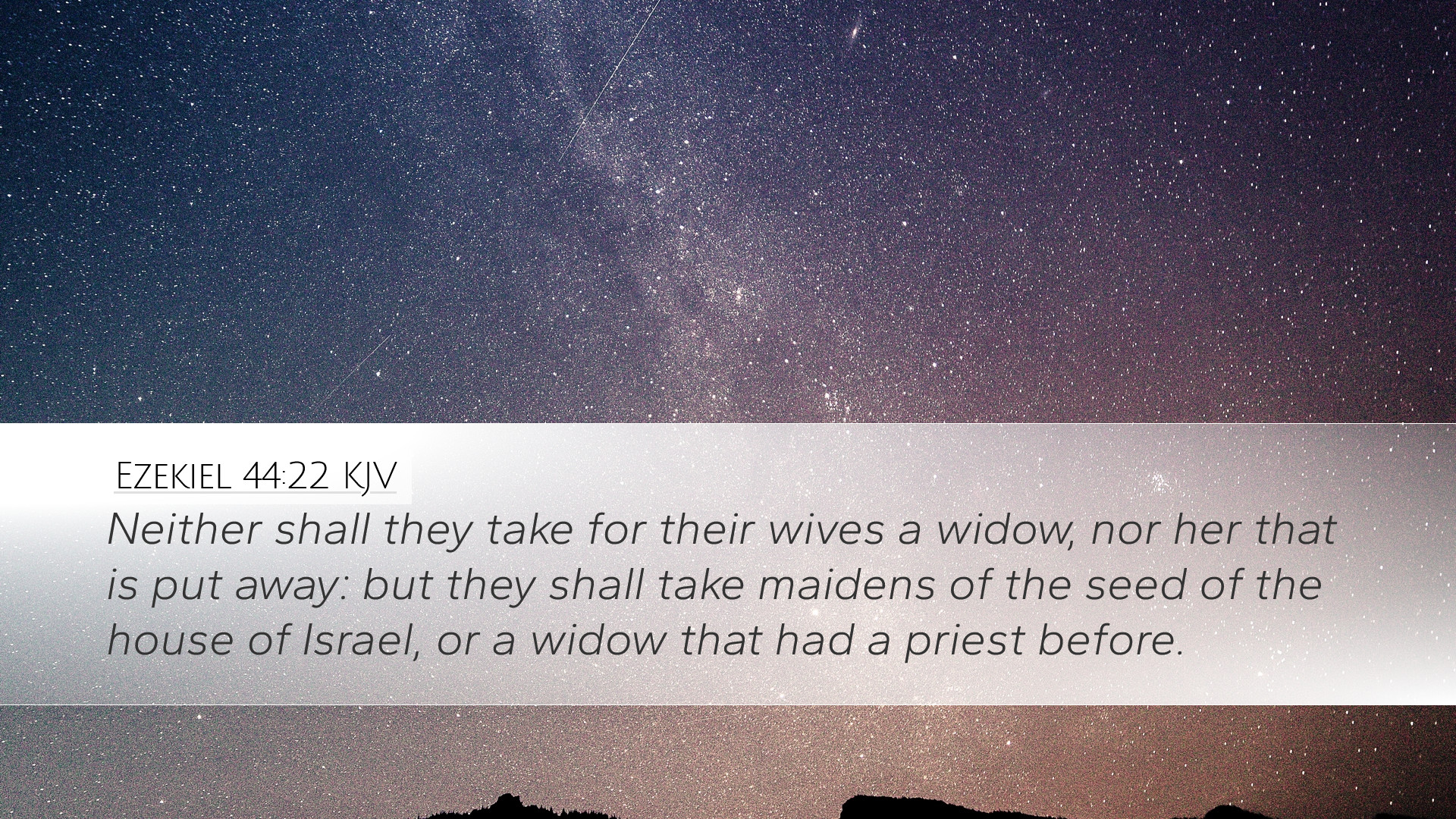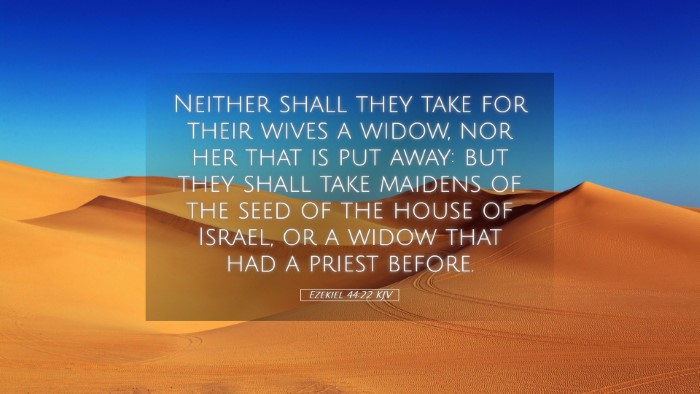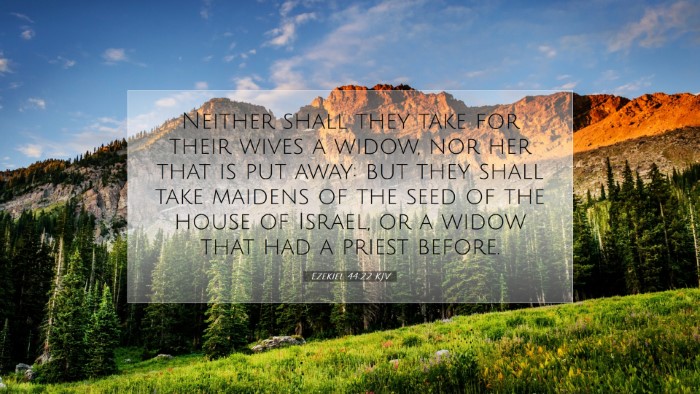Commentary on Ezekiel 44:22
Ezekiel 44:22 states: "Neither shall they take for their wives a widow, nor her that is put away: but they shall take maidens of the seed of the house of Israel, or a widow that had a priest before." This verse is part of the broader regulations that define the conduct and privileges of the Levitical priests in the restored temple of Jerusalem. It reveals the importance of lineage, purity, and holiness in the life of the priest.
Contextual Overview
The book of Ezekiel is a prophetic work attributed to the prophet Ezekiel, who was among the exiles in Babylon. His prophecies address the judgment of Israel, the hope of restoration, and the vision of a new temple and a renewed worship. Chapter 44 contains instructions concerning the duties, privileges, and restrictions for the priests serving in this new temple.
The Significance of Marriage Restrictions
Matthew Henry comments on the sacredness of the priestly office and how the family life of the priest reflects the holiness required of their ministry. The instruction to refrain from marrying widows or those divorced emphasizes the need for moral and ceremonial purity.
- Moral Purity: The priests are seen as representatives of God’s holiness, and their conduct in personal life reflects on their service in the temple.
- Ceremonial Holiness: The priesthood was separated for special service, and as such, their marriages needed to align with the expectations of holiness set forth in the law.
Understanding the ‘Maidens’ and ‘Widows of Priests’
Both Albert Barnes and Adam Clarke highlight the differentiation between the types of women allowed for marriage by the priests. The emphasis on "maidens of the seed of the house of Israel" emphasizes the importance of maintaining a pure priestly lineage.
- Maidens of the Seed: The command to marry virgins – and specifically those from the house of Israel – underscores the link between marital fidelity and priestly duty.
- Widows of Priests: The allowance for priests to marry the widow of a deceased priest serves to honor the priestly line and ensure the continuity of service to God.
Theological Implications
The, restrictions placed on the marriage of priests in Ezekiel 44:22 carry significant theological implications regarding the nature of holiness and community identity.
- Holiness: The presence of God within the temple demands a specific standard of holiness that permeates every aspect of temple life, including the personal lives of the priests.
- Community Identity: The conduct of the priest reflects the overall relationship between Israel and God. The priest's role can be seen as a microcosm of Israel's commitment to the covenant.
Pastoral Applications
For pastors and church leaders today, Ezekiel 44:22 serves as a reminder of the responsibilities embedded in leadership roles within the church. It encourages leaders to uphold the integrity and moral standards expected in their ministries.
- Modeling Holiness: Leaders should strive to display a life that reflects God’s holiness in their personal and family lives.
- Cultivating Community: Building a community that respects and values purity in relationships is essential for nurturing a spirit of worship.
Conclusion
Ezekiel 44:22 conveys profound truths concerning the standards set for the priests, which, while specific to their context, hold timeless significance for spiritual leaders today. The reflections provided by Matthew Henry, Albert Barnes, and Adam Clarke offer valuable insights that can enhance our understanding of both the text and its applications in contemporary ministry.


